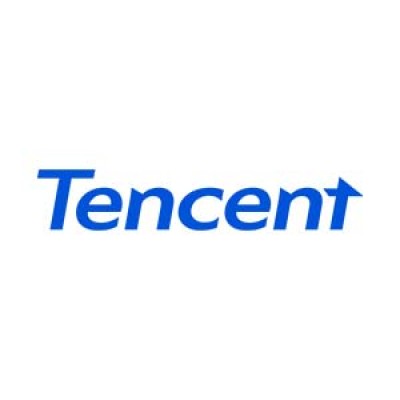Ubisoft's Rocky Road: A Game Developer's Struggle for Survival
May 16, 2025, 12:20 am

Location: France, Ile-de-France, Saint-Mandé
Employees: 10001+
Founded date: 1986
Total raised: $2.01B
Ubisoft, the French video game titan, is in a precarious position. Once a shining star in the gaming universe, it now faces a storm of challenges. The company recently forecasted flat sales for the upcoming fiscal year, signaling a troubling trend. This comes on the heels of a staggering 20% drop in bookings, which fell to €1.85 billion ($2.07 billion) for the fiscal year ending March 31, 2025. Investors are restless, and the market has reacted sharply, with shares plummeting by nearly 60% over the past year.
The latest figures reveal a company grappling with a series of setbacks. The fourth quarter alone saw a 3.4% decline in bookings. This downturn has left many questioning the future of iconic franchises like Assassin’s Creed and Far Cry. The once-thriving gaming landscape has turned into a battlefield, with intense competition and shifting consumer preferences.
CEO Yves Guillemot is at the helm, navigating these turbulent waters. He acknowledges the challenges but remains optimistic. The company is reshaping its operational model, aiming to streamline processes and enhance productivity. This includes the formation of a new subsidiary, partially owned by Tencent Holdings Ltd., which will focus on developing key titles. Tencent's investment of €1.16 billion is a lifeline, a vote of confidence amid uncertainty.
Yet, the reality is stark. Ubisoft's operational loss of €15.1 million for the year paints a grim picture. The company's ambitious plans to cut costs by €200 million have been met ahead of schedule, but this is merely a band-aid on a larger wound. The workforce has shrunk, with 1,230 employees laid off in the past year.
The gaming industry is notorious for its volatility. Ubisoft's struggles are not unique, but they are particularly pronounced. The pandemic initially boosted gaming sales, creating a false sense of security. As the world returned to normal, the demand for new titles waned. Ubisoft's latest release, "Assassin’s Creed: Shadows," launched after two delays, failed to generate the expected excitement.
Investors are left with a sense of unease. The company's forecast for stable net bookings in the current fiscal year does little to inspire confidence. The expectation to break even on a non-IFRS operating income basis is a cautious approach, but it lacks the ambition that once characterized Ubisoft.
The formation of the new subsidiary is a strategic move, but it raises questions. Will this division dilute the brand? Will it foster innovation or stifle creativity? The stakes are high. Ubisoft must balance the demands of shareholders with the need to produce compelling content.
The gaming landscape is evolving. Players are seeking immersive experiences, rich narratives, and engaging gameplay. Ubisoft's traditional franchises must adapt to these changing tastes. The company is aware of this need for evolution. Guillemot has hinted at a new organizational structure to better align with market demands.
The partnership with Tencent could be a game-changer. With a 25% stake in the new subsidiary, Tencent brings not only capital but also expertise in the rapidly growing Asian market. This collaboration could open doors to new audiences and revenue streams. However, it also introduces complexities. Ubisoft must navigate the intricacies of working with a major player in the tech industry while maintaining its creative independence.
As the company moves forward, it faces a critical juncture. The next few years will be pivotal. Ubisoft must innovate while managing costs. It must engage its loyal fanbase while attracting new players. The pressure is immense, but so is the potential for revival.
In conclusion, Ubisoft stands at a crossroads. The challenges are daunting, but the company has a rich legacy to draw upon. With strategic partnerships and a renewed focus on its core franchises, there is hope for a turnaround. The gaming world is unforgiving, but it also rewards resilience and creativity. Ubisoft must harness its strengths and adapt to the changing landscape. The journey ahead will be tough, but with determination, it can reclaim its place among the giants of the industry. The game is far from over.
The latest figures reveal a company grappling with a series of setbacks. The fourth quarter alone saw a 3.4% decline in bookings. This downturn has left many questioning the future of iconic franchises like Assassin’s Creed and Far Cry. The once-thriving gaming landscape has turned into a battlefield, with intense competition and shifting consumer preferences.
CEO Yves Guillemot is at the helm, navigating these turbulent waters. He acknowledges the challenges but remains optimistic. The company is reshaping its operational model, aiming to streamline processes and enhance productivity. This includes the formation of a new subsidiary, partially owned by Tencent Holdings Ltd., which will focus on developing key titles. Tencent's investment of €1.16 billion is a lifeline, a vote of confidence amid uncertainty.
Yet, the reality is stark. Ubisoft's operational loss of €15.1 million for the year paints a grim picture. The company's ambitious plans to cut costs by €200 million have been met ahead of schedule, but this is merely a band-aid on a larger wound. The workforce has shrunk, with 1,230 employees laid off in the past year.
The gaming industry is notorious for its volatility. Ubisoft's struggles are not unique, but they are particularly pronounced. The pandemic initially boosted gaming sales, creating a false sense of security. As the world returned to normal, the demand for new titles waned. Ubisoft's latest release, "Assassin’s Creed: Shadows," launched after two delays, failed to generate the expected excitement.
Investors are left with a sense of unease. The company's forecast for stable net bookings in the current fiscal year does little to inspire confidence. The expectation to break even on a non-IFRS operating income basis is a cautious approach, but it lacks the ambition that once characterized Ubisoft.
The formation of the new subsidiary is a strategic move, but it raises questions. Will this division dilute the brand? Will it foster innovation or stifle creativity? The stakes are high. Ubisoft must balance the demands of shareholders with the need to produce compelling content.
The gaming landscape is evolving. Players are seeking immersive experiences, rich narratives, and engaging gameplay. Ubisoft's traditional franchises must adapt to these changing tastes. The company is aware of this need for evolution. Guillemot has hinted at a new organizational structure to better align with market demands.
The partnership with Tencent could be a game-changer. With a 25% stake in the new subsidiary, Tencent brings not only capital but also expertise in the rapidly growing Asian market. This collaboration could open doors to new audiences and revenue streams. However, it also introduces complexities. Ubisoft must navigate the intricacies of working with a major player in the tech industry while maintaining its creative independence.
As the company moves forward, it faces a critical juncture. The next few years will be pivotal. Ubisoft must innovate while managing costs. It must engage its loyal fanbase while attracting new players. The pressure is immense, but so is the potential for revival.
In conclusion, Ubisoft stands at a crossroads. The challenges are daunting, but the company has a rich legacy to draw upon. With strategic partnerships and a renewed focus on its core franchises, there is hope for a turnaround. The gaming world is unforgiving, but it also rewards resilience and creativity. Ubisoft must harness its strengths and adapt to the changing landscape. The journey ahead will be tough, but with determination, it can reclaim its place among the giants of the industry. The game is far from over.
